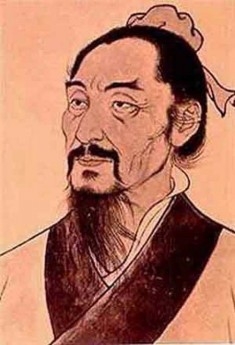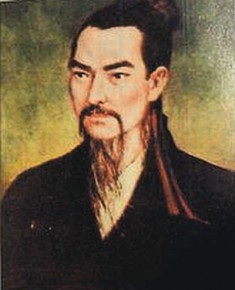| Mozi | |
|---|---|
 |
|
| Ancient Philosopher | |
| Specialty | Mohism |
| Born | c. 470 BC |
| Died | c. 391 BC |
| Nationality | Chinese |
Mozi was a Chinese philosopher during the period of the Hundred Schools of Thought. He was born in Tengzhou, which is in the Shandong province in China. Mozi was the founder of the Mohism School, and he was strongly against Daoism and Confucianism. The idea of Mohism was once practiced quite actively in many states, but its popularity declined when legalist Qin Dynasty took control. During that period, Qin Shi Huang ordered the burning of Mohism literature and carried out the elimination of scholars. Mohism further declined during the times of the Han Dynasty as they propagated Confucianism during their time.
Personal Life
There have been doubts and debates over the real name of Mozi. Some say he inherited the surname Mo from his ancestor, who they suppose was the Lord of Guzhu. Others believe that Mozi did not have any ancestral or clan name and Mo was merely the name of the Mohist school itself.
Many historians assume that Mozi belonged to a lower class artisan family who managed to make his way up in official post. It is understood that Mozi’s parents showed little love towards him and that they were not affectionate. Mozi served as a minister in state of Song. Just like Confucius, he also maintained a school for people who desired to serve and become officials in various ruling courts of the Warring Sates.
Educational Years
Mozi was a skillful carpenter who would build innovative devices. He used to create devices such as wheeled ladders, mechanical birds, and other things. While he never served at a very senior official position, he was still sought after by several rulers for his expert advice on the topic of fortification and warfare strategy.
Mozi studied Confucianism as a child, but he never liked the thought process of this philosophy as he thought it focused too much on extensive celebrations, funerals, and rituals. He believed all those affected the productivity of people and that it was detrimental to their livelihood.
Mozi’s Followers
 During his lifetime, Mozi managed to attract a large number of followers, many of whom were technicians or craftspeople. His followers studied Mozi’s writings, both technical and philosophical. Many praised Mozi for his moral values and attitude towards mankind.
During his lifetime, Mozi managed to attract a large number of followers, many of whom were technicians or craftspeople. His followers studied Mozi’s writings, both technical and philosophical. Many praised Mozi for his moral values and attitude towards mankind.
The popularity of the Mohism school of thought declined and it slowly faded into obscurity following the Warring State period. In the 20th century, his writings again came into focus when they were again studied, nearly 2000 after his death. His writings were one of the most difficult to decipher because they were out of the Hundred Schools of Thoughts and they were not copied for such a long time.
Mozi’s Philosophy
Mozi’s philosophy was based on universal love and treating everyone with respect and love. His doctrine of Universal Law was criticized by Confucianism, who believed that the children should hold more affection towards parents than random strangers.
Mozi’s philosophy was a philosophy of the common man. Mohists also believed in the theory of utilitarianism, which means avoiding activities, ceremonies, rituals and other excesses of the elite that are waste of money. Mozi believed that the Way of Heaven was to do what is most beneficial. According to him, Heaven nourishes and sustains all life without regard to status, and the Universal love is the only path to Heaven.
The main focus of Mohism was to incorporate methods that help doing good for the society and removing bad from the society. Moists believed that the wisdom and power of heaven and God greatly surpasses that of an ancient saint.
Mozi and his followers were idealists and condemned Confucians for their orthodox traditional mindset and for their graded approach to relationships and responsibilities.
Works and Influence
The philosophical text compiled by Mohists is also known as Mozi. The Mozi text contained 71 chapters. During the era of the Han Dynasty, Confucianism prevailed and as Mohism was quite against Confucianism, the Mozi text was largely neglected.
During the times of the Song Dynasty, only 61 of the chapters were available. Today, only 53 of those are available through which the Mohist school of thought can be understood. The texts were lost as Mohism faded away in popularity. Mozi text is a great insight into Chinese dynasties and culture. The text also records Mozi’s conversation with other well-known philosophers of that era.